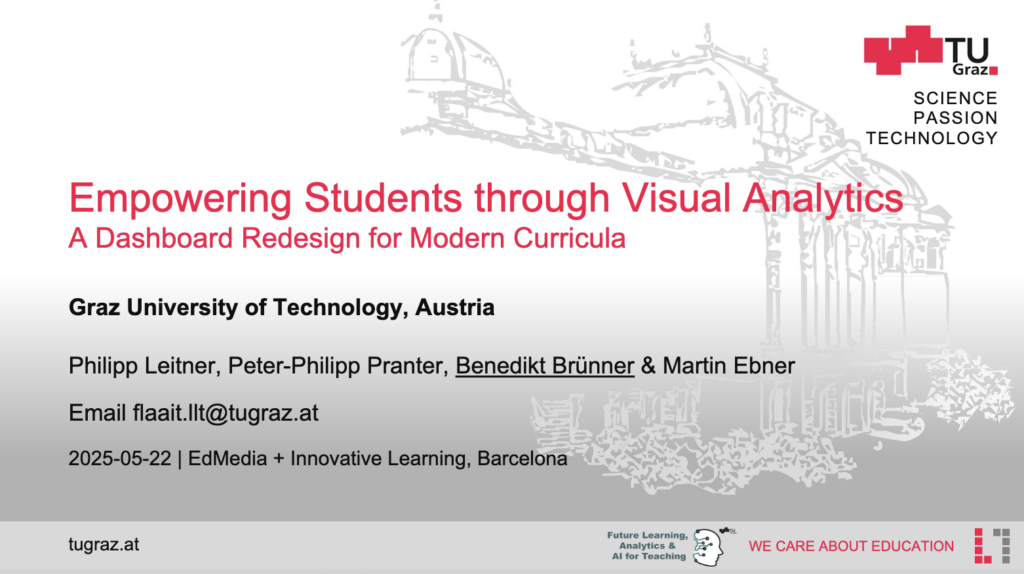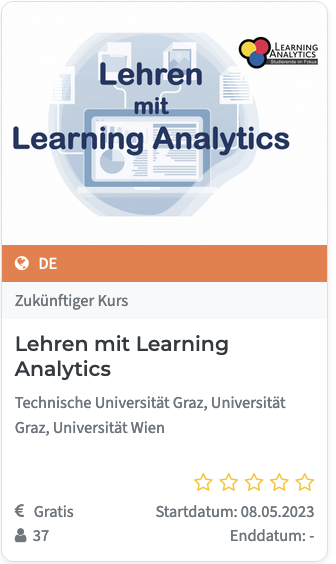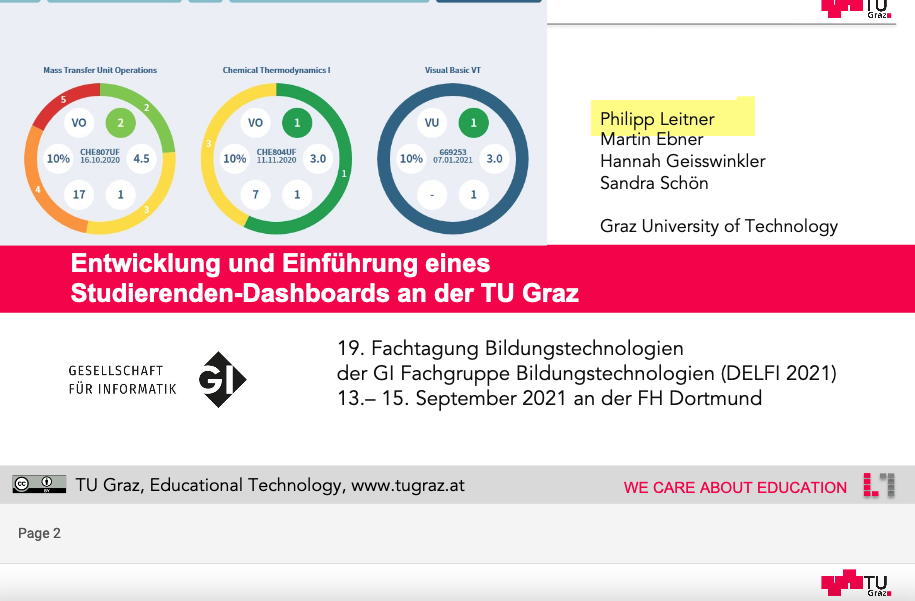Für das fnma-Magazin 02/25 haben wir einen kurzen Beitrag zu „Digitaler Überblick statt Datenfragmentierung: Ein Studienfortschritts-Dashboard für die TU Graz“ geschrieben. Dieser bzw. das gesamte Magazin ist online erhältlich.
Abstract:
Transparenz, Selbststeuerung und digitale Unterstützung sind zentrale Faktoren für Studierbarkeit im digitalen Zeitalter. In diesem Beitrag zeigen wir, wie an der TU Graz gemeinsam mit Studierenden ein datenbasiertes Studienfortschritts-Dashboard entwickelt wird, das Orientierung schafft, Planung erleichtert und neue Impulse für ein nachhaltiges Digital Wellbeing im Student-Life-Cycle setzt.
[fnma Magazin 02/25]
[Beitrag @ ResearchGate]
Zitation: Brünner, B., Leitner, P., Pranter, P.-P. & Ebner, M. (2025) Digitaler Überblick statt Datenfragmentierung: Ein Studienfortschritts-Dashboard für die TU Graz, fnma-Magazin 02/25, S. 16-19, https://www.fnma.at/content/download/3220/21290?version=2





